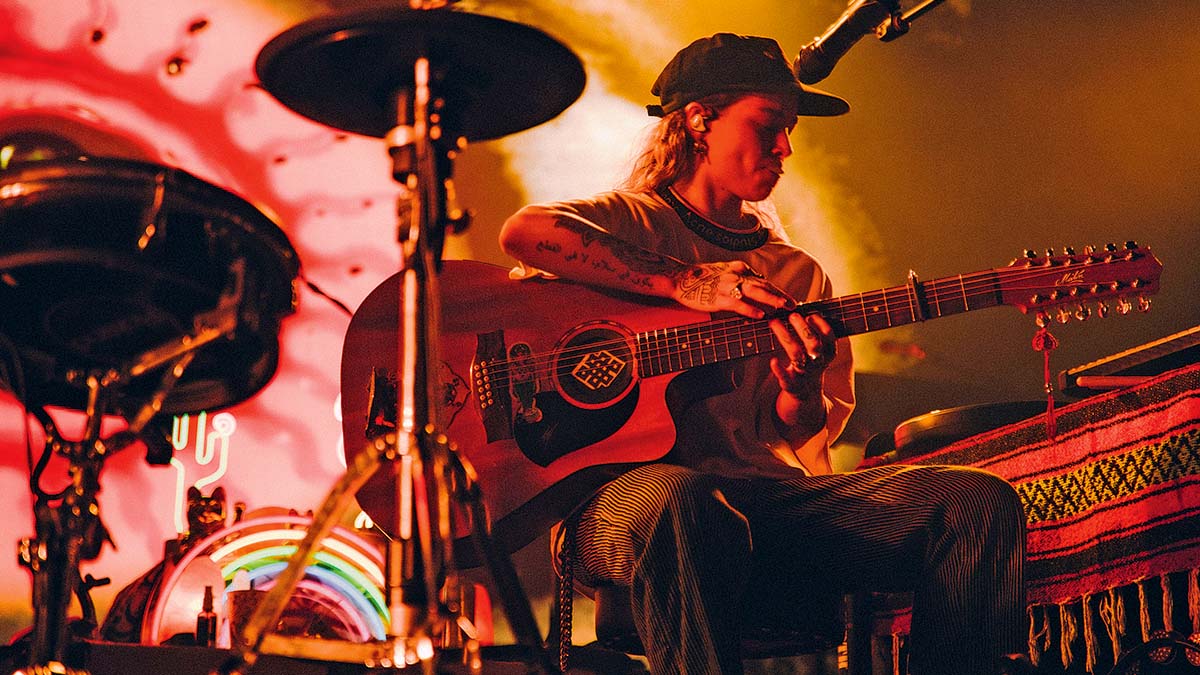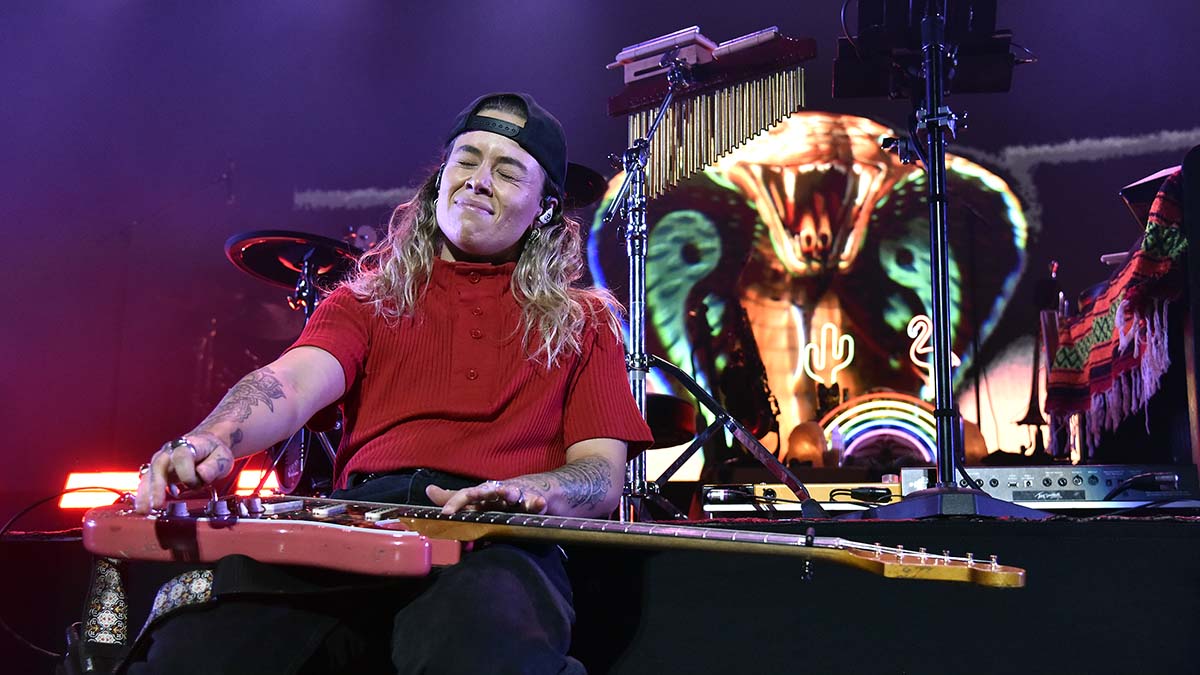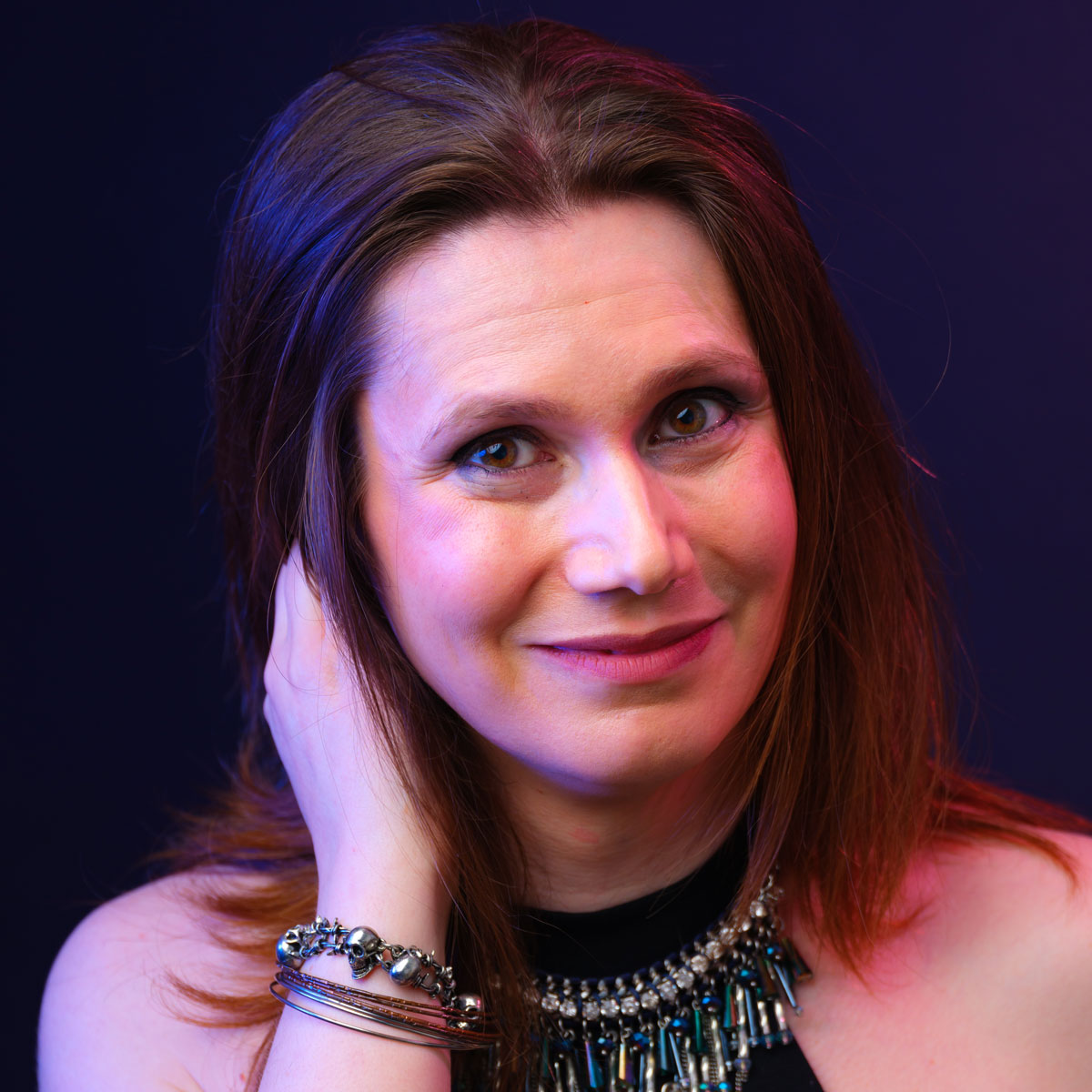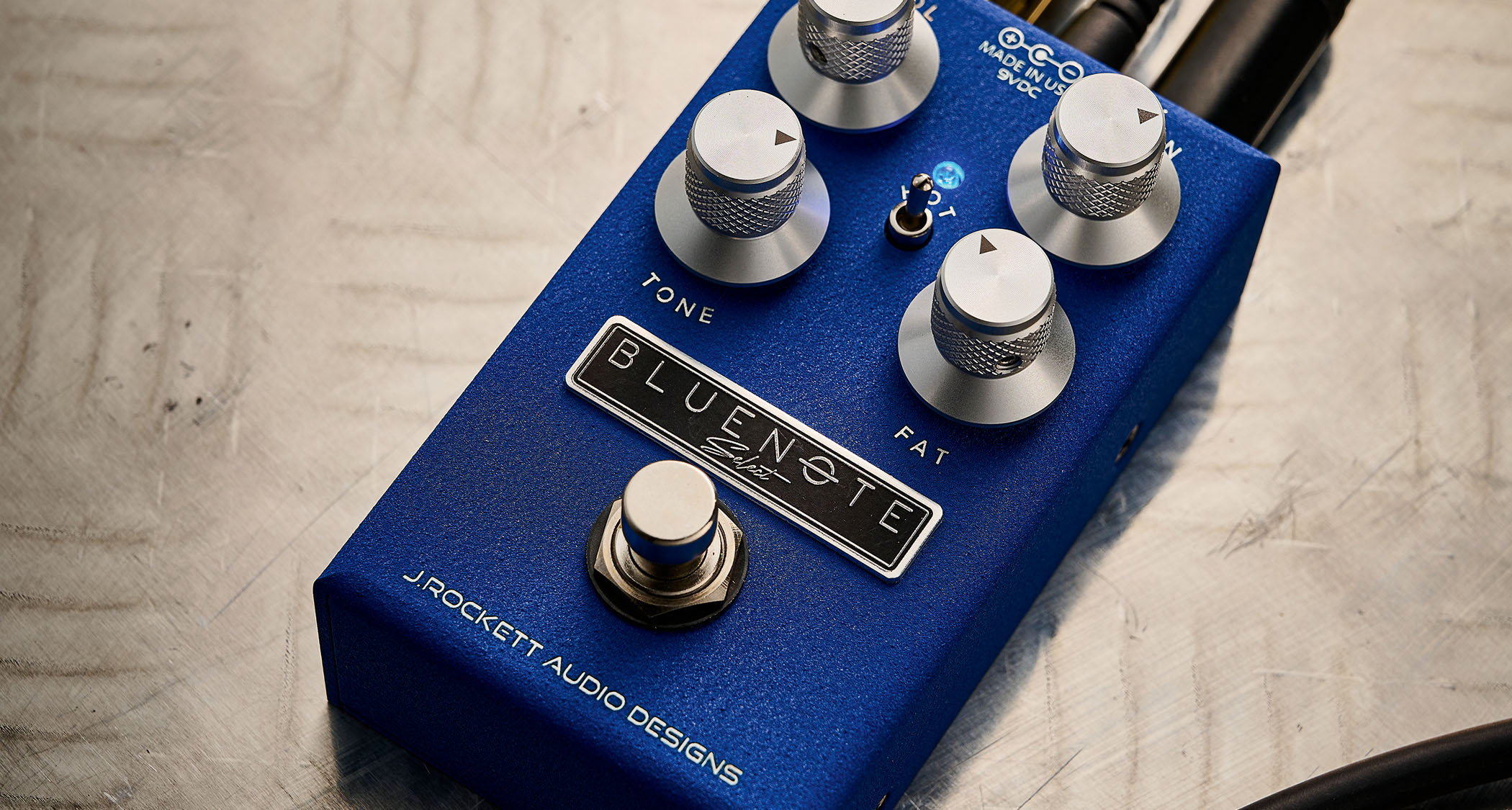Tash Sultana on winning over MTV with a daring Unplugged performance and cracking Eric Johnson Strats in half onstage
The Australian polymath on an iconoclastic Unplugged performance that brought Strats and Teles to the party

When Kurt Cobain turned up for Nirvana’s MTV Unplugged special in 1993, he had a Fender Twin and a Boss DS-2 distortion in tow. Purists were not impressed, but it’s now the most lauded performance from Unplugged’s original run.
In 2021, Tash Sultana showed an even more flagrant disregard for the rules, appearing with such notably not-unplugged devices as a Stratocaster, a Telecaster, and a Whammy pedal. “I had people kicking off about the fact that I was gonna do it very much plugged in,” Tash recalls. “I just thought, ‘Nah, fuck ‘em.’ I didn’t think about it being unplugged. I just thought this is a television broadcast and I’m gonna bring it.”
While it’s too early to say how history will remember Tash’s MTV Unplugged: Live in Melbourne, the early response has been hugely positive. The TV broadcast has been shown in 150 countries, the furthest reach of any Australian MTV concert to date, and when the album version was released in June, it racked up 2.5 million streams in 24 hours. “I’m really glad that I stuck to my guns,” Tash smiles. “I just knew I had crafted something that was worth the time.”
Sticking to their guns is central to Tash’s philosophy, shown in their response to MTV’s initial scepticism.
“When other people try and get in the way of your creative vision then it’s not really yours anymore,” Tash says. “Why would I listen to the guy that’s in the office? You’re in the office, bro!” MTV were won over when Tash revealed the performance would show them in an entirely new light. Their performances to date have been solo affairs, with Tash playing all instruments and creating loops on the fly.
For Unplugged, Tash agreed to debut their live band. The addition of a drummer, keyboardist and bassist allow Tash’s guitar and vocals to take the spotlight.
“It was a way that nobody had seen me perform before. For this new era, I wanted to go beyond looping and have a couple of session players play the parts that I obviously can’t play at the same time,” they explain. MTV were convinced, agreeing to extend the programme to 60 minutes.
Get The Pick Newsletter
All the latest guitar news, interviews, lessons, reviews, deals and more, direct to your inbox!
All Tash’s irreverent take has in common with past Unplugged performances is the intimacy: 150 fans in a tight space allows for a close connection with the artist.
But there are plenty of acoustic guitars in evidence, and Tash’s 6- and 12-string Matons sound great. Coma features a cool open C5 tuning (C-G-C-G-C-G) on a 12 string, capo’d at the 4th fret.
Their approach to acoustic tone, though, is... not exactly what we were expecting. “The acoustic guitars are literally just plugged in and that’s that.” Seriously? “I do a bit of processing on them as well. I apply tape saturation to the guitars. The acoustic guitars are DI but I double it and triple it and then run it through a bunch of processing that makes it sound like it’s actually in front of a microphone in a room to get a bit of depth happening.”
That sounds more like it. But, they insist, “I honestly really like the sound of a DI acoustic guitar and generally just go for that.”
There is, however, a clear difference in Tash’s approach to acoustic guitar.
“I definitely play them heaps differently. On electric, even when I’m getting stuck into stuff l still try to hold back and be gentle because the tone on electric guitar thrashing it sounds like shit!
“Acoustic guitar has more dynamic to it because it’s an acoustic instrument, so when you put that weight into the guitar you’re getting the whole body of the guitar within that strum. When I play Blackbird I bash the shit out of the guitar, but then if I played things like Coma or Crop Circles I’m quite reserved.
“It’s about creating dynamics. I’ll use different sized picks as well. If I’m going to start digging in really hard but I want to keep the sound compressed and not ripping your face off, I’ll use a really light pick. If I’m playing harder I’ll use a softer pick and if I’m playing softer I’ll use a harder pick.”
Talk of “thrashing it” is not exaggerated. “I’ve cracked guitars in half on stage before,” Tash laughs. “I had an Eric Johnson Stratocaster and I dropped that from head height onto the ground just out of excitement and the whole body cracked in half. We’ve repaired it and now it looks really sick. It’s got this really thick crack through it where it’s been glued back together.”
That Strat apparently still sounds great, but Tash is nervous about messing with their favourite gear. “I’ve been tossing up for ages if I want to put a Bigsby on my Ritchie Kotzen Telecaster but I don’t want to risk changing the sound.”
Tash also finds that Strats and Teles reward different ways of playing: “When I play the Strat I’ve got more of like a slinky approach to it. That’s where I do a lot of the reggae snaps. Those screechy solos, they’re all Strats. If I hit my Tele really hard versus my Strat, the Tele is way thicker. It’s got heaps more push and body behind it than the Strat. The Strat doesn’t want to be hit like that.”
“Playing gentle is really hard to do when you’re on stage because you’re really excited,” they continue. “When you are excited or if you’re nervous you just lose a bit of your motor function. You get clunky instead of relaxed. When I’m about to get on stage I try to be really calm to the point where I could have a nap!
“When my body is relaxed I play better. I can create good dynamics in the show. When you want to go big and be rough and be loud it’s more effective than coming out and doing that for the whole show. I try to be gentle so that the big bits stand out more.”

The decision to include electric guitars in an unplugged set makes more sense if you know Tash’s history.
“When I was about 13 I’d saved up a bunch of money from a couple of years of birthdays and I bought a Fender acoustic. Then for years I didn’t touch an electric guitar. I just kind of got stuck in acoustic world. I was listening to City and Colour, Dallas Green and Bon Iver. I started songwriting around that around that age. I was playing acoustic guitars at open mic nights and busking.
“When I would busk with the acoustic guitar I wouldn’t turn a single head all day, so then I thought, ‘Well, fuck, something’s not really working here.’ I took my electric guitar to the street and changed the game straight away. Now all of these songs that I wrote acoustically when I was like 16, 17, 18 years old are the most popular songs that people want to hear, whereas back then no-one had the time of day for them.”
The first single from MTV Unplugged is a prime example. “I wrote Coma when I was 17, and when I’d go and busk that song no-one cared.”
With the taping being such a success, Tash was set on mixing the audio themselves. “I’ve done a couple of TV performances but usually the audio is just lacking. It’s a quick mix and they don’t care. What’s the point going on TV for your sound to be handled by somebody that has no idea who you are or what your sound actually is?”
The perfectionism that saw Tash record hundreds of takes for 2021’s Terra Firma returned in earnest. “It took me three months to do it. I probably did over 120 reference mixes in the end. During lockdown there was nothing else going on so I just became obsessed with it.”
Inevitably, such a gruelling mix process gave Tash ear fatigue. “You come back into the studio, listen to your mix and you’re just like, ‘What the fuck!’ As soon as you bring another person into the room it changes how you hear the song. All of a sudden you’ve brought your mate in and you can finally hear that the guitar is too loud or the vocal’s too quiet.”
That dedication to retaining control has allowed Tash to make music on their own terms. “The music industry is run on people in the office,” they say. “It’s something I’m struggling with at the moment. It’s obsessed with being the biggest artist in the world and they’ll do whatever they have to do to get there. It comes down to not even really liking your music anymore. You’re letting other people write it for you. If that works for you then it works for you, but I could never do that. If it’s not mine then I can’t connect.”
By contrast, Tash is now released from all their earlier record deals, leaving them justifiably proud to be “fully, fully independent”. They pause. “It’s a really nice spot to be in, because I’ve already planned my next moves.”
- MTV Unplugged: Live In Melbourne is out now via Lonely Lands Records/Sony Music.
Jenna writes for Total Guitar and Guitar World, and is the former classic rock columnist for Guitar Techniques. She studied with Guthrie Govan at BIMM, and has taught guitar for 15 years. She's toured in 10 countries and played on a Top 10 album (in Sweden).
“It combines unique aesthetics with modern playability and impressive tone, creating a Firebird unlike any I’ve had the pleasure of playing before”: Gibson Firebird Platypus review
“I met Joe when he was 12. He picked up a vintage guitar in one store and they told him to leave. But someone said, ‘This guy called Norm will let you play his stuff’”: The unlikely rise of Norman’s Rare Guitars and the birth of the vintage guitar market











